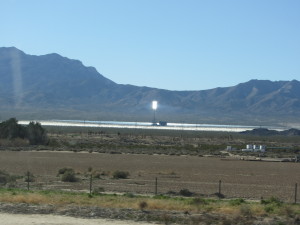Larry Santoyo, “Permaculture for Humanity: Moderating the Urgency of Urbanism”
Larry Santoyo, a permaculture teacher and designer from LA, brought images of his design work from urban locations around the world. He discussed how when he first learned permaculture, he thought he wanted to move from the city to the wilderness to start from the ground up and create his own place. So he did, moving from LA to the Pacific Northwest. And realized it was a terrible idea. In the process, though, he realized that “making urban centers more sustainable is how we directly preserve the wilderness.” In the words of Bill Mollison, he said, “If we lose our universities, we would lose nothing. If we lose our forests, we lose everything. ”
Larry has since returned to the urban setting, concentrating his work in LA. As Larry points out, we always have human ingenuity. Arts, science, culture, technologies, strategies. Think of biomimetic responses–how would nature do it? And a quote he is known for, “We don’t do permaculture design, we use permaculture design.”
Larry continues, Nature starts small, with small successful arrangements. These can be duplicated, and replicated–solutions multiply. Form hundreds of millions of small working groups. These groups will work together to meet each others’ needs. Surplus resources can be used toward unmet needs. “Be proud contributors to the community! Not just consumers.”
Larry had a question from the audience, “How do you define wealth?” To which he answered, “I think every community will define that for themselves. Try to be valuable rather than try to be wealthy.”
And probably my favorite quote from Larry, and the conference as a whole, “I think that one day we will be so embarrassed that we had to have a fucking conference to talk about doing the obvious. Let’s never talk about this again. “
When working within the community, Larry stresses, “the person that gets listened to is the person that is quiet, confident, and speaks from experience. ”
In a particularly violent village in Haiti, Larry and a team visited to address the issue of human waste and sewage in the streets. A previous group of permaculture designers had gone to the village, applying a solution, composting toilets, without thinking through the problem. Composting toilets were NOT the solution, in fact, they were spreading cholera, as people carried their waste to composting piles. Instead, Larry’s team built canals to channel sewage away from where people were standing in the village. Larry stresses, the methodology is the same, but the programming, output and design is different.
In another village that Larry visited, a 1600s colonial town in high altitude Mexico, he felt he was more the student than the teacher. This is a very large town, with its own bank, and agricultural trials using methods from all over the world. Yet the people had their traditional culture intact. They are interested in what people are doing around the world, and if they believe its something that might work for them, they try it out. One of the main crops in the area is coffee. If a farmer wants to grow coffee, the bank goes to the property and surveys 127 bird species and other biological indicators to make sure coffee growing will be successful, and that the bank’s investment will be safe. Let’s learn from these folks!
Thanks to Larry for some of the greatest stories and quotes from the conference.
Larry Santoyo leads EarthFlow Design Works and City of Angels Permaculture Academy.
